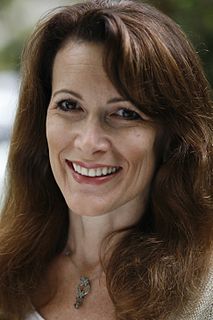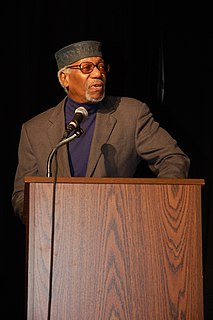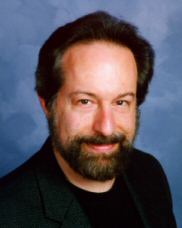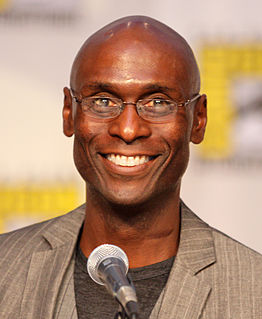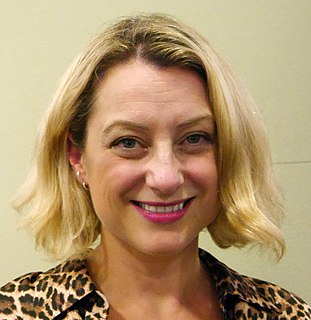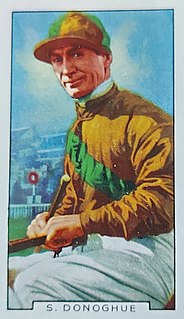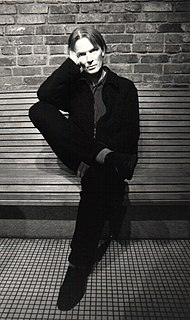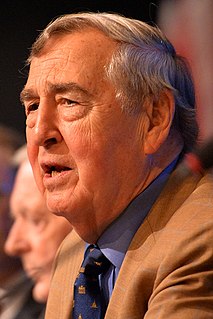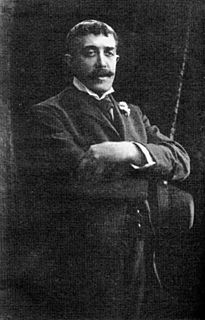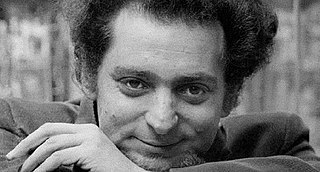Top 1200 Insight Quotes & Sayings - Page 20
Explore popular Insight quotes.
Last updated on April 16, 2025.
Not the least of the problems in clarifying one's consciousness is developing the stoic determination to criticize one's own softness or sentimentality toward oneself. Ego, self-solicitous about its own tenderness, is the ultimate policeman over its own false consciousness, dementedly uprooting every healthy seedling of insight into the truth. As Kierkegaard remarked, most people are subjective toward themselves and objective toward all others, but the real trick and task of life is to learn to be just the very opposite.
Thou waitest for the spark from heaven! and we, Light half-believers of our casual creeds, Who never deeply felt, nor clearly will'd, Whose insight never has borne fruit in deeds, Whose vague resolves never have been fulfill'd; For whom each year we see Breeds new beginnings, disappointments new; Who hesitate and falter life away, And lose to-morrow the ground won to-day Ah! do not we, wanderer! await it too?
Over time you learn to know a bit more about yourself - you develop a certain amount of self-insight and self-awareness, and you know what you can absorb, and what you cannot; what gets to you and what doesn't. And I observe a lot. I see a lot around me. And over time you also get to understand the nature of man and the environments you are dealing with, and you can't always allow emotions and temper to flare up because you're displeased with something, or you want to change it.
When scientists need to explain difficult points of theory, illustration by hypothetical example - rather than by total abstraction - works well (perhaps indispensably) as a rhetorical device. Such cases do not function as speculations in the pejorative sense - as silly stories that provide insight into complex mechanisms - but rather as idealized illustrations to exemplify a difficult point of theory. (Other fields, like philosophy and the law, use such conjectural cases as a standard device.
It is more important to have beauty in one's equations than to have them fit experiment... It seems that if one is working from the point of view of getting beauty in one's equations, and if one has really a sound insight, one is on a sure line of progress. If there is not complete agreement between the results of one's work and experiment, one should not allow oneself to be too discouraged, because the discrepancy may well be due to minor features that are not properly taken into account and that will get cleared up with further developments of the theory.
Complete knowledge of the nature of an analytic function must also include insight into its behavior for imaginary values of the arguments. Often the latter is indispensable even for a proper appreciation of the behavior of the function for real arguments. It is therefore essential that the original determination of the function concept be broadened to a domain of magnitudes which includes both the real and the imaginary quantities, on an equal footing, under the single designation complex numbers.
I recently read in the book My Stroke of Insight by brain scientist Jill Bolte Taylor that the natural life span of an emotion—the average time it takes for it to move through the nervous system and body—is only a minute and a half. After that we need thoughts to keep the emotion rolling. So if we wonder why we lock into painful emotional states like anxiety, depression, or rage, we need look no further than our own endless stream of inner dialogue.
If the moon, in the act of completing its eternal way around the earth, were gifted with self-consciousness, it would feel thoroughly convinced that it was traveling its way of its own accord on the strength of a resolution taken once and for all. So would a Being, endowed with higher insight and more perfect intelligence, watching man and his doings, smile about man's illusion that he was acting according to his own free will.
I am fooling only myself when I say that my mother exists now only in the photographs on my bulletin board or in the outline of my hand or in the armful of memories I still hold tight. She lives on beneath everything I do. Her presence influenced who I was and her absence influences who I am. Our lives are shaped as much by those who leave us as they are by those who stay. Loss is our legacy. Insight is our gift. Memory is our guide.
I really loved ["The Love Affairs of Nathaniel P" by Adelle Waldman]. It's having a really hot moment. Unlike many hot books, it's actually really wonderful. I tend to have that reaction: I don't want to read it if everyone thinks it's cool. It was a really interesting insight into being young and male. Now that made me feel really thankful for my boyfriend and really thankful because he wasn't like that protagonist, but I know so many people who are like that protagonist.
Socrates, whose mother was a midwife, used to say that his art was like the art of the midwife. She does not herself give birth to the child, but she is there to help during its delivery. Similarly, Socrates saw his task as helping people to 'give birth' to correct insight, since real understanding must come from within. . . . Everybody can grasp philosophical truths if they just use their innate reason.
and while faith based on theological reasoning is today universally engaged in a bitter struggle with doubt and resistance from the prevailing brand of rationalism, it does seem that the naked fundamental experience itself, that primal seizure of mystic insight, stripped of religious concepts, perhaps no longer to be regarded as a religious experience at all, has undergone an immense expansion and now forms the soul of that complex irrationalism that haunts our era like a night bird lost in the dawn.
Year after year, author/historian William Loren Katz continues to mine the lodestone of Black culture, and it is simply amazing how often he manages to find new treasures. Here, with the same insight he brought to Black Indians and his other books, the author traces the courageous role of Black women in settling the West. He deftly shows how these pioneering spirits helped stabilize early communities in Texas, Oklahoma, California and elsewhere.
A belief in God may not be fully within me anymore, but there's still a belief in belief. The high drama and power of the Church has stayed with me. As a child in church, I saw grown men at the altar crying out for God's mercy. And the idea of someone doing that has become a joke in the popular culture, but when you are there and you see it, you experience - for a moment - an incredibly raw, honest, strange insight into what it means to be a human being. Those experiences don't leave you. Whatever you think of them, they are powerful experiences.
Fasting from any nourishment, activity, involvement or pursuit—for any season—sets the stage for God to appear. Fasting is not a tool to pry wisdom out of God's hands or to force needed insight about a decision. Fasting is not a tool for gaining discipline or developing piety (whatever that might be). Instead, fasting is the bulimic act of ridding ourselves of our fullness to attune our senses to the mysteries that swirl in and around us."—Dan B. Allender, PhD
We don't necessarily need so many artists. I recommend that many of the people who think they want to be artists should go into the American Friends Service Committee, or do government outreach to communities that don't have water, or that need seeds or ecological assistance. It would create a system in which people with engaged sensibilities and potential insight assist instead of imposing. I think it could leap right out of the art world into wonderful community action.
The trick now is to turn insight into foresight. The trick is to know this about your tomorrow, today... Remember, your future is not coming to you; it's coming through you...change your idea about the changes to come, even as you change your idea about the changes that have passed. Then you can change your experience of both.
Artur Rubinstein, the famous pianist, was once asked the secret of his success-was it dedication, ability, discipline, hard work? Mr. Rubinstein smiled as he remarked, "It's hard to say, but one thing I do know: if you love life, life will love you back!" What a wonderful insight! That philosophy explains how a man in his eighties can continue to be so creative. For life is simply filled with exciting blessings for everybody. They're ours if we give enough of ourselves to life!
Ivan and Misha is the great American Russian Novel told as Chekhov would tell it, in stories of delicacy, humanity, and insight. From Kiev to Manhattan, Brighton Beach and Bellevue, Michael Alenyikov lays out a series of compelling arguments for brotherhood between brothers, between lovers, between men from an old country. Alenyikov confronts big subjects—illness and madness, sex and love in the age of AIDS, old and new world values, a fallen wall, the metaphysics of survival, the march of generations.
When I was fourteen, my father was so ignorant I could hardly stand to have him around. When I got to be twenty-one, I was astonished at how much he had learned in seven years. See what happens when you "know it all", at any stage of life? Farther down the track you may see clearly how certain personal opinions, held onto too tightly, could be fogging up the view, and providing incorrect insight. Prosperity is the best protector of principle.
Books on scientific photography with such beauty, breadth, and insight are rare. Felice Frankel's Envisioning Science is chock full of mind-boggling images and valuable information--not only for curious artists, students, and lay people, but also for seasoned researchers and photographers. The eclectic Frankel is both a scientist and photographer, and with the cold logic of the one and the inspired vision of the other, she covers an array of topics sure to stimulate your imagination and sense of wonder at the incredible vastness of the physical world.
Quotes are like prompts. A way of searching, connecting the dots. Other people's thinking has always - both positively and negatively - jumpstarted my thinking. Quotes are also a way of acting out not just a text, and not just thinking, but the making of a text. The construction of thinking. The quotes are part of those constructions and reflections. Thinking through quotes, which to say scouring a range of texts for insight, is one way to outline the process of thinking/feeling through a subject.
Notes are tricky in an audition, because I find, more often than not, my instinct is right. If they have a preconceived notion about the role and it goes against my instinct, unless it makes sense to me, it often throws off what I'm trying to do. Though sometimes they have an insight that I don't because they've been living with the script. I don't have one feeling or another about notes, but it is always a little bit of a red alert when I get one in an audition.
She once said, 'I'm really a little prudish, which people may think incongruous'. I take a prudish point of view on certain films, books, and trends. Then, I pull myself up short and ask myself how Gypsy Rose Lee could possibly be this way.I thought that quote was so telling, a key insight into the way she so carefully separated who she was from her meticulous creation.
The fact that cognitive diversity matters does not mean that if you assemble a group of diverse but thoroughly uninformed people, their collective wisdom will be smarter than an expert's. But if you can assemble a diverse group of people who possess varying degrees of knowledge and insight, you're better off entrusting it with major decisions rather than leaving them in the hands of one or two people, no matter how smart those people are.
Any of us who listen to the news or listen to stories our neighbors tell are accustomed to violence. We have to decide then to ignore the violence and create a gentler world in our fiction, or to heighten the violence through the use of point-of-view in order to explore it and gain some insight and understanding. Since I'm living with the violence and trouble in my brain, it's kind of a relief to write about it, to get it on paper, to put it in context, to find meaning in it.
Having observed his market calls real time over the years, I can say that Jason Perl's application of the DeMark Indicators distinguishes his work from industry peers when it comes to market timing. This book demonstrates how traders can benefit from his insight, using the studies to identify the exhaustion of established trends or the onset of new ones. Whether you're fundamentally or technically inclined, Perl's DeMark Indicators is an invaluable trading resource.
Kaz came to Switzerland where I was teaching to share with me [Heart Sutra] wondrous insight. There he and I worked on this new translation - with my part being to help render it into a verse form that would be good to chant. Since I have worked with many dying people over the years and often share the Heart Sutra with them, I found this new version that we created together to be so much more accessible to those who were facing death.
**New business concepts are always, always the product of lucky foresight.** That's right - the essential insight doesn't come out of any dirigiste planning process; it comes form some cocktail of happenstance, desire, curiosity, ambition and need. But at the end of the day, there has to be a degree of foresight -- a sense of where new riches lie. So radical innovation is always one part fortuity and one part clearheaded vision. [first-line bold by author] [2002] p.23
I think all those years that I spent as a nurse, from the age of seventeen, just allowed me an insight into human emotion at those times of life when it's so important. And to see and witness those times of grief and love and loss and all those things was such a huge privilege, both in my own personal life, but it also, I think, spills over into my writing. I think the one thing that most novelists have is some degree of emotional intelligence, and if you don't have that, then perhaps you might struggle to be a novelist, because that has to come out somewhere.
... except in the eyes of a few fanatics (untrustworthy as all lovers) an unmitigated expanse of water is dull even when blue: not in a small boat, where you are part of the winds and currents and tides and are allowed to hold the tiller now and then; but from those decks which the shipping companies with subconscious insight try to make as suburban as possible so that the impact of the monster outside may be lessened, and where the unrecognized boredom is so deep that a wispy smear of smoke on the horizon will queue up a crowd as if for a Valkyrie passing.
Of course fear does not automatically lead to courage. Injury does not necessarily lead to insight. Hardship will not automatically make us better. Pain can break us or make us wiser. Suffering can destroy us or make us stronger. Fear can cripple us, or it can make us more courageous. It is resilience that makes the difference.
I think it's really hard to find a good women's magazine, and I like that Glamour is way more about what you want and not what your man wants. I don't really know what it's like to be a woman yet, so I wouldn't have too much insight, but I guess it would be a bit interesting to have more of that granny style in there. Because I think it should be easier for women to feel like they don't have to be conventionally attractive or think of flattering clothing before they think of fun clothing.
The second volume of Reiner Stach's epic biography of Franz Kafka . . . [is] a tangle of counter-grained and often under-sourced life stories, but reading Stach's magnificent narrative (wonderfully translated by Shelley Frisch) straight through brings death, not life, to the forefront. Stach is a compulsively readable writer. . . . [A]s in the previous volume, the prose in The Years of Insight is supple and very appealingly complex--all of which, once again, is perfectly rendered by Frisch.
When I create music, the feeling that you get... I get first. You [the listener] have a delayed experience with the feeling I initially get when I have a creative insight. Not just the voice, but all the creativity - the production, the idea, the concept, the music involved. There is a high. There is an emotional experience that happens when everything comes together... I made music as consistently as I did, especially back in the day, because it made me feel so good... When everything is on, it's a wonderful feeling.
Billy was fascinated by the television. At its most basic level, it occupied his time and shut out the demons of isolation. This was another irony because, for so long, he had shunned the tube for a similar purpose-to prevent it from bombarding his brain with demons of banality. However, each time he turned the machine on, he began to discover a world of assorted delights, as well as gain insight into the insidious manner in which this medium was shaping the mass psyche. If nothing else, he learned there was nothing innocuous about it.
In every revolution there intrude, at the side of its true agents, men of a different stamp; some of them survivors of and devotees to past revolutions, without insight into the present movement, but preserving popular influence by their known honesty and courage, or by the sheer force of tradition; others mere brawlers, who, by dint of repeating year after year the same set of stereotyped declamations against the government of the day, have sneaked into the reputation of revolutionists of the first water They are an unavoidable evil: with time they are shaken off.
It was not the beautiful or pleasant feelings that gave me new insight, but the ones against which I fought most strongly: feelings that made me experience myself as shabby, petty, mean, helpless, humiliated, demanding, resentful or confused, and above all, sad and lonely. It was precisely through these experiences, which I had shunned for so long, that I became certain that I now understood something about my life, stemming from the core of my being, something that I could not have learned from any book.
if you don't keep and guard and mature your force, and above all, have time and quiet to perfect your work, you will be writing things not much better than you did five years ago. ... you must write to the human heart, the great consciousness that all humanity goes to make up. Otherwise what might be strength in a writer is only crudeness, and what might be insight is only observation; sentimemnt falls to sentimentality - you can write about life, but never write life itself.
Here is an example of Confucius sayings: "It does not matter how slowly you go so long as you do not stop." In a few words, Confucius teaches us about patience, perseverance, discipline, and hard work. But if you probe further, you will see more layers. Confucius' philosophies have significantly influenced spiritual and social thought. His views bear insight and depth of wisdom. You can apply his teachings in every sphere of life. Confucius' profound teachings are based on humanism.
Make sure to immediately write down any impressions you receive. Intuitive impressions are often subtle and therefore 'evaporate' very quickly, so make sure to capture them in writing as soon as possible. Recent research in neuroscience indicates that an intuitive insight - or any new idea - not captured within 37 seconds is likely never to be recalled again. In 7 minutes, it's gone forever. As my buddy Mark Victor Hansen likes to say, 'As soon as you think it, ink it!'
However, for the man who studies to gain insight, books and studies are merely rungs of the ladder on which he climbs to the summit of knowledge. As soon as a rung has raised him up one step, he leaves it behind. On the other hand, the many who study in order to fill their memory do not use the rungs of the ladder for climbing, but take them off and load themselves with them to take away, rejoicing at the increasing weight of the burden. They remain below forever, because they bear what should have bourne them.
Something is funny, most of all, because it's true, and because the velocity of insight into this truth exceeds our normal standards. Something is funny because it's outside our accepted boundary of decorum. Something is funny because it defies our expectations. Something is funny because it offers a temporary reprieve from the hardship of seeing the world as it actually is. Something is funny because it is able to suggest gently that even the worst of our circumstances and sins is subject to eventual mercy.
One can get a proper insight into the practice of flying only by actual flying experiments. . . . The manner in which we have to meet the irregularities of the wind, when soaring in the air, can only be learnt by being in the air itself. . . . The only way which leads us to a quick development in human flight is a systematic and energetic practice in actual flying experiments.
When a rapidly rising power rivals an established ruling power, trouble ensues. In 11 of 15 cases in which this has occurred in the past 500 years, the result was war. The great Greek historian Thucydides identified these structural stresses as the primary cause of the war between Athens and Sparta in ancient Greece. In his oft-quoted insight, "It was the rise of Athens and the fear that this inspired in Sparta that made war inevitable."
Ensor sees with his imagination, but his vision is perfectly accurate, of an almost geometric precision. He is one of the very few who can really see. Like you, he has an obsession with masks; he is a seer as you and I are. The common herd, of course thinks that he is mad.*****************You shall see what sort of man Ensor is, and what a marvellous insight he has into the invisible realm where our vices are created... those vices for which our faces make masks.
Space travel leading to skylife is vital to human survival, because the question is not whether we will be hit by an asteroid, but when. A planetary culture that does not develop spacefaring is courting suicide. All our history, all our social progress and growing insight will be for nothing if we perish. No risk of this kind, however small it might be argued to be, is worth taking, and no cost to prevent it is too great. No level of risk is acceptable when it comes to all or nothing survival.
I think the Buddhist ethic is clearer and more systematic in some ways. The Buddhist notion is that our chief problems are greed, hatred and delusion. Well, delusion is not much mentioned in the Christian tradition. In the West, we have underplayed the idea that our moral and spiritual troubles have to do with a lack of clarity or insight because original sin has dominated so much of our thinking. We tend to think that our troubles are caused by insufficient will power.
I call this the Fundamental Problem of Political Economy. How do we limit the power that idiots have over us? ... [Milton] Friedmans insight is that a market limits the power that others have over us; conversely, limiting the power that others have over us allows us to have markets. Friedman argued that no matter how wise the officials of government may be, market competition does a better job of protecting us from idiots.
When we're on tour, probably we don't go 24 hours without someone asking us where we came up with the name They Might Be Giants. Which, on one level, seems like a completely legitimate question. If I think of other bands, like The Beatles, it would explain to me that John Lennon had a proclivity for slightly cheap puns. But I'm not sure how much insight that would give me into what's actually good about The Beatles' music.
I fully agree with you about the significance and educational value of as well as history and philosophy of science. So many people today - and even professional - seem to me like someone who has seen thousands of trees but has never seen a forest. A knowledge of the historic and philosophical background gives that kind of independence from prejudices of his generation from which most scientists are suffering. This independence created by philosophical insight is - in my opinion - the mark of distinction between a mere artisan or specialist and a real seeker after truth.
Our Founding Fathers well understood that concentrated power is the enemy of liberty and the rights of man. They knew that the American experiment in individual liberty, free enterprise and republican self-government could succeed only if power were widely distributed. And since in any society social and political power flow from economic power, they saw that wealth and property would have to be widely distributed among the people of the country. The truth of this insight is immediately apparent.
The difference between the "natural" individuation process, which runs its course unconsciously, and the one that is consciously realized is tremendous. In the first case, consciousness nowhere intervenes; the end remains as dark as the beginning. In the second case, so much darkness comes to light that the personality is permeated with light and consciousness necessarily gains in scope and insight. The encounter between conscious and unconscious has to ensure that the light that shines in the darkness is not only comprehended by the darkness, but comprehends it.
When you approach spirituality as an adventure of being alive, you start as you would any adventure--with a sense of mystery and not-knowing. Instead of searching for answers that make you feel safe, you set out into the vastness of life and death, with a willingness to continually grow. You open up to the possibility that your ordinary life is an extraordinary adventure, and that your joys and sorrows have meaning. Spiritual practice becomes your rudder, offering direction and insight and discretion as you venture into the unknown.
From this, one can make a deduction which is quite certainly the ultimate truth of jigsaw puzzles: despite appearances, puzzling is not a solitary game: every move the puzzler makes, the puzzlemaker has made before; every piece the puzzler picks up, and picks up again, and studies and strokes, every combination he tries, and tries a second time, every blunder and every insight, each hope and each discouragement have all been designed, calculated, and decided by the other.
Before examining this more carefully and investigating its consequences, I want to dwell for a moment in the contemplation of God, to ponder His attributes in me, to see, admire, and adore the beauty of His boundless light, insofar as my clouded insight allows. Believing that the supreme happiness of the other life consists wholly of the contemplation of divine greatness, I now find that through less perfect contemplation of the same sort I can gain the greatest joy available in this life.
Language of the Gun shows why Bernard Harcourt has earned a reputation as one of our most provocative and informative analysts of the administration of criminal justice. Thoroughly interdisciplinary, he brings to bear on his subject a remarkably wide range of sources. Most striking are his probing interviews with at-risk youths which provide a fascinating and rare glimpse into how they think about guns and gun carrying. This book bristles with insight and information.
Individuals of the earlier species had suffered from an almost insurmountable spiritual isolation from one another. Not even lovers, and scarcely even the geniuses with special insight into personality, ever had anything like accurate vision of one another... The most precious gift that a lover could bring to the beloved was not virginity but sexual experience. The union, it was felt, was the more pregnant the more each party could contribute from previous sexual and spiritual intimacy with others.
We do not merely give a religious education because that would seem to imply the possibility of some other education, a secular education, for example. But we hold that all education is divine, that every good gift of knowledge and insight comes from above, that the Lord the Holy Spirit is the supreme educator of mankind, and that the culmination of all education (which may at the same time be reached by a little child) is that personal knowledge of and intimacy with God in which our being finds its fullest perfection.
Embedded in the gospel of Jesus Christ there are eternal principles and truths that will last far longer than the principles of building ships and roofs. You and I, as members of the Lord's true Church, have special access and insight into these eternal principles and truths, especially when we listen to the Spirit for individual guidance and hear the prophet's voice as he declares the will of God to the members of the Church. You and I both know how important these eternal principles and truths are in our lives.








